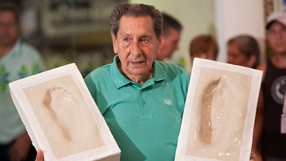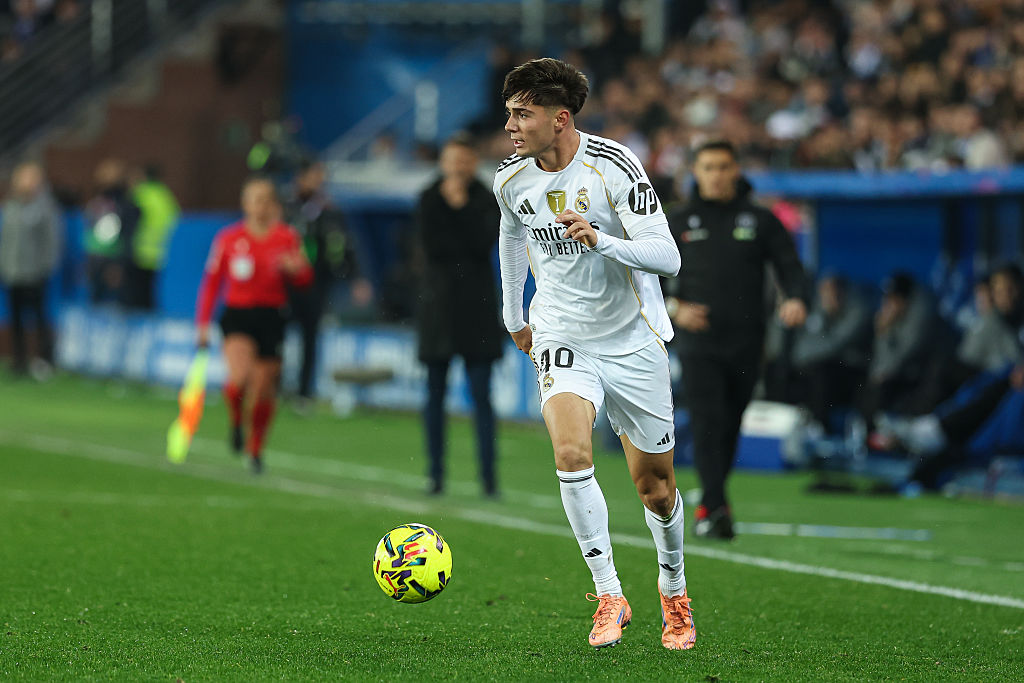
Alcides Ghiggia, who won the 1950 World Cup for Uruguay with the decisive goal in a 2-1 victory over Brazil, planted his feet in a mould to take his place alongside greats including Brazil's Pele and Portugal's Eusebio.
The shy 83-year-old declined to take questions from reporters at the Rio de Janeiro stadium, limiting himself to a few pleasantries and a "Viva Brazil" before leaving.
"I'm a bit emotional," he said. "I just want to thank everyone from my heart for the reception I've been given."
His goal was a moment of intense collective trauma for Brazilians, nearly 200,000 of whom had packed the newly built Maracana stadium in the confident expectation of watching their team win the young nation's first World Cup.
After demolishing Sweden and Spain in the previous two games, Brazil only needed a draw against their tiny neighbours to lift the trophy on home soil, a victory that had already been declared by some local politicians and newspapers.
But the nervous Brazilian team surrendered a one-goal lead and allowed Ghiggia to race down the right wing and score a second goal that silenced the massive crowd at what was then the world's largest soccer stadium.
The defeat has haunted the Brazilian players for the rest of their lives and has been known in Brazil ever since as "The Fateful Final."
The best features, fun and footballing quizzes, straight to your inbox every week.
"It was a catastrophe," said Marco Antonio, a 43-year-old driver. "My father was at the game and he said that he cried a lot. Every Brazilian cried. But now, it's a pleasure to receive him. Whoever likes football, likes goals."
With a record five World Cups under Brazil's belt and a growing confidence in its economy and world role, there are signs that the new generation of Brazilians are managing to put the dark memory of July 16, 1950 behind them.
"Ghiggia - he was a goalkeeper, right?" said Juliana Godoy, a 28-year-old visitor from Sao Paulo.
 Join The Club
Join The Club





